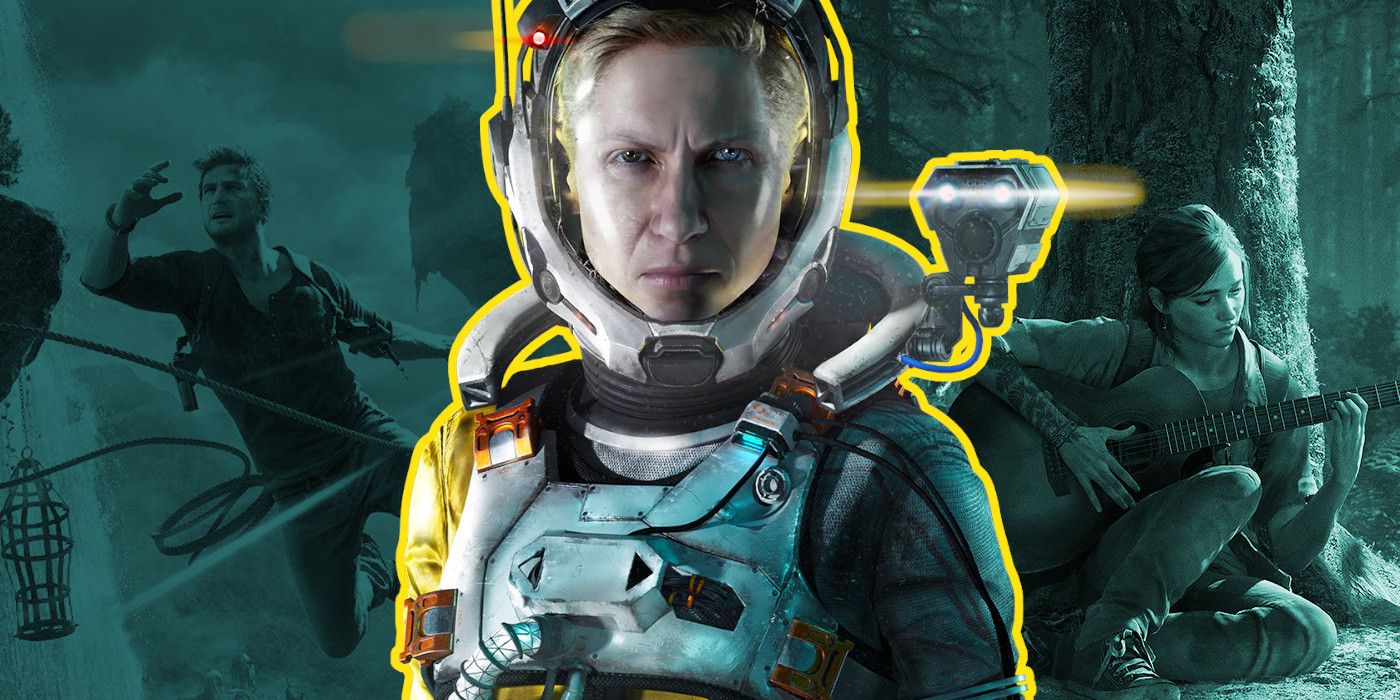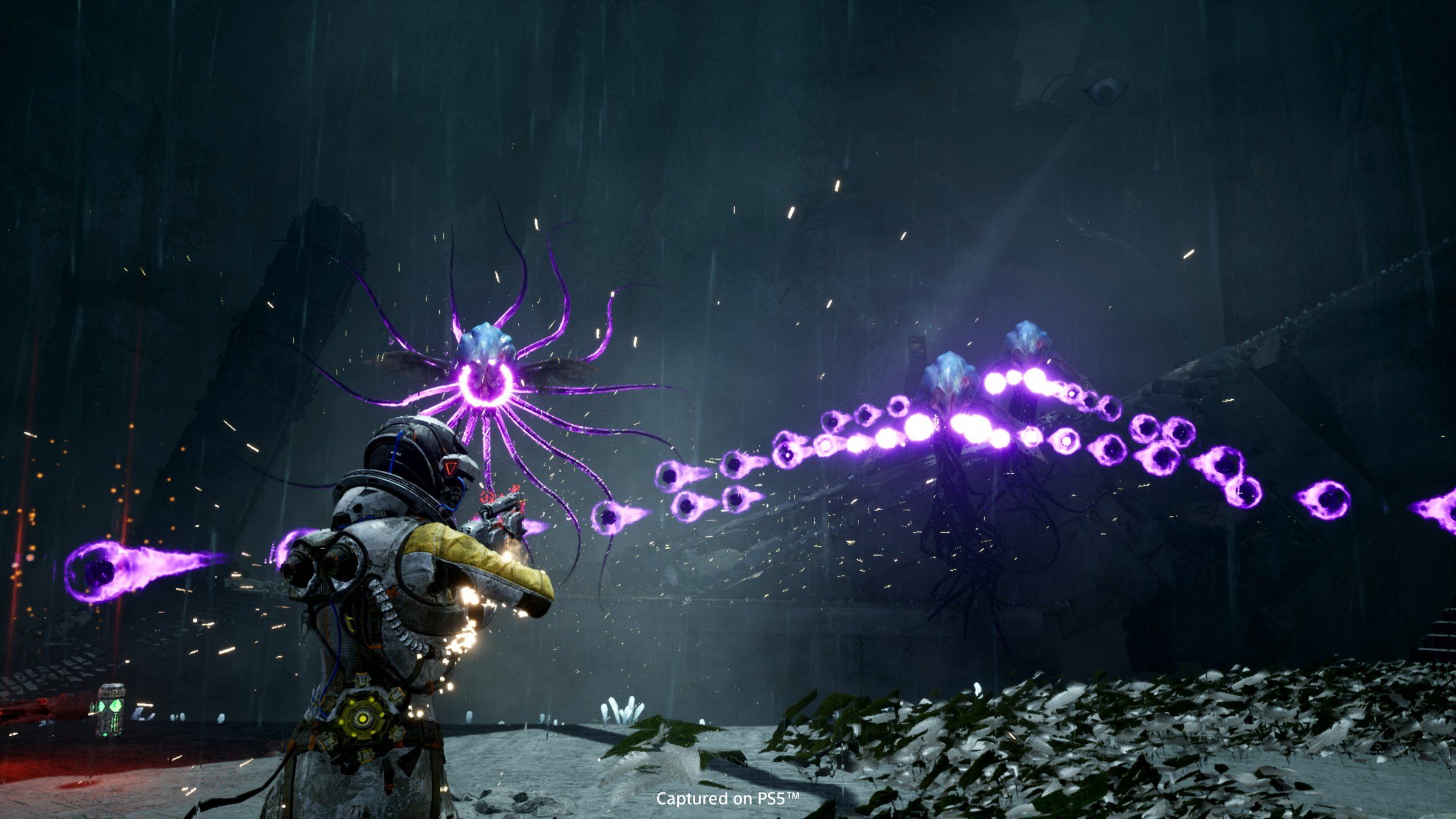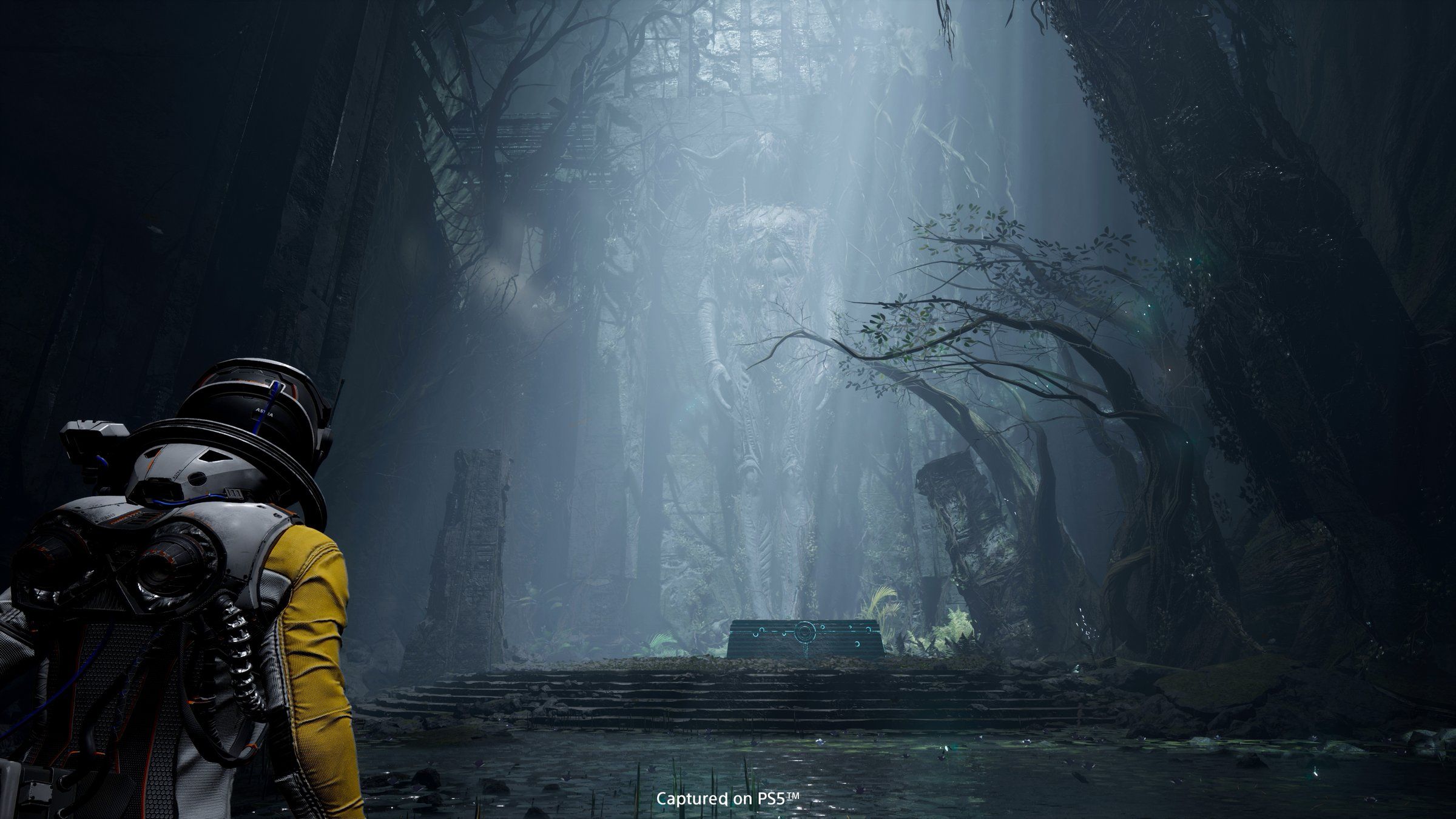Returnal is one of the most refreshing PlayStation games of the Uncharted era. Naughty Dog has largely controlled the narrative surrounding AAA on PlayStation since the release of Uncharted 2 and especially The Last of Us. Cinematic third-person action became the norm. Of course, this trend has produced some of the best games in recent memory, as Naughty Dog is perhaps the industry's best studio. That said, Naughty Dog's impact has been so outsized that most of the PlayStation stable followed its suit. As such, whenever a major PlayStation release challenges that status quo, it feels even more successful because of it.
Returnal absolutely cuts against that grain -- even if aesthetics suggest otherwise. This is another third-person action title with a rich narrative and a focus on immersive realism. However, Housemarque's pedigree in the arcade space gives Returnal a very unique flavor that isn't found in PlayStation's core AAA titles, or really in the industry's AAA space at all.
In short, Returnal does not care about the player -- and that's to its benefit. While its obtuse mechanics and steep difficulty have turned some off from Returnal's stunning design, those who dig their heels in will be rewarded. The game sets its own tempo immediately and asks the player to keep up. Returnal launches without fanfare, and each death immediately cycles the player back to square one. Each run through the procedurally-generated world is unforgiving and tutorials are absent. The player has to learn the game themselves and improve their skills materially to progress.
Nothing about Returnal is overwrought or unnecessary because Housemarque brought arcade sensibilities to a AAA framework. This game is about accruing combos, honing reflexes and feeling the rhythm of combat. Anything else is a bonus. The game has a compelling narrative, but it's told through diegetic environmental storytelling for the most part. It never breaks the pace unless the player wants it to. The game is about momentum and brutal repetition, not foregrounded narrative and methodical, grounded gameplay.
The moment-to-moment experience is a blistering tango of bullet-hell and terse concentration. It's easy to draw comparisons to DOOM 2016's silky Glory Kill gameplay loop. But that combat is contextualized within an almost Breath of the Wild-like world. Atropos simply presents itself as-is and asks the player to parcel out its secrets similar to Zelda. The comparisons to these other atypical AAA games underscore Returnal's ability to provide something truly unique.
At the same time, there is some scaffolding that keeps the game from feeling too oppressive. Returnal has a lot of similarities to Metroid, both in terms of aesthetics and gameplay. The latter informs steady progression. By hitting certain milestones – whether that's defeating a boss or clearing a certain challenge in a biome – the player is rewarded with new equipment and shortcuts that can be leveraged on later runs. As with the other facets of Returnal's design, these boons are only as useful as the player's ability to implement them. Still, while the game is intentionally hostile in many respects, these sorts of buffers help smooth out the experience.
In an environment with a Sony that wants to remake The Last of Us, Returnal feels all the more essential. It, alongside games like Astro's Playroom, are clear counterpoints to the stifling tradition of AAA on PlayStation. While it may seem strange to find the antidote to homogeneity within a roguelike considering the genre's oversaturation, Returnal finds a way. Between its clear arcade influence, organic narrative structure, and oppressive gameplay-first focus, Housemarque found a way to genuinely bring a new flavor to its genre and the AAA space overall. While it's too early to declare game of the year, Returnal is an early frontrunner.



